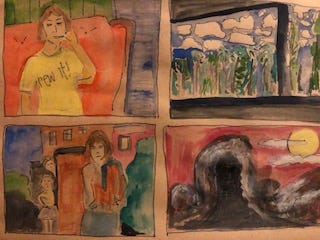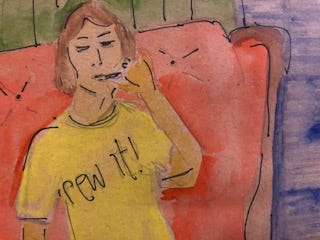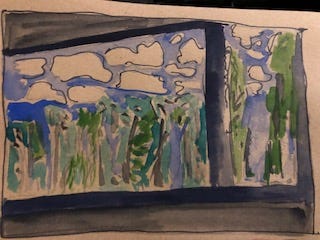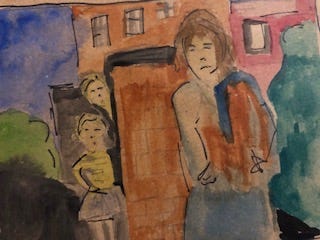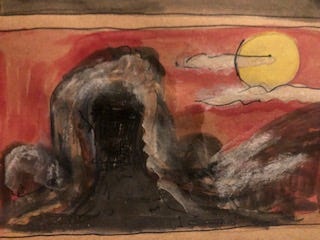Visual Diary #14
Cinema Verite, Puffy Clouds, Andrea Dunbar and a dark mountain
Lyn lights up. This is Lyn from Joel DeMott & Jeff Kreines 1983 documentary ‘Seventeen’. The film follows a group of teenagers from small town Muncie, Indiana through teacher sassing, an extended kegger, death, pregnancy, racial violence, drunk parents dancing, bullshitting, big cars and boredom. DeMott died in July I knew of her work only because somehow years ago I managed to see Demon Lover Diary, a film that I remember mostly for unhinged Ted Nugent, and need to see again.
“While filming, Kreines and DeMott kept their approach simple: never interview, never ask anyone to do (or repeat) anything, never ask people what their plans are, never turn on the lights, and never ever show up without your camera. DeMott and Kreines did not act like “flies on the wall” (as they would point out, flies are meant to be swatted). Their philosophy was to hang out, shoot, and be themselves. They filmed with a 10mm lens to approximate human perspective and never used zooms (the human eye doesn’t zoom) typically shooting from 1.5 to 3 feet away. And for similar reasons, they didn’t use cutaways. A viewer senses the filmmaker’s physical presence and real-time decision-making in every frame.” Source
Seventeen is a long film and absolutely none of it is boring. You can find copies on youtube, but for an unadulterated version follow links here.
Went away for a couple of days. Here’s the view from the holiday house in Rye: teatrees, olive trees, lavender, silver & green, starry skies, puffy clouds, rainy days and occasional sunshine. Decided not to pay $50 for firewood. Did some intense op-shopping. My favourite purchases were some “Horizons’ Art journals from 1960, one with an article about Lee Remick, another with a feature on mermaids, and also a photo-essay about Jacqueline Roque, late-period Picasso’s wife.
While I was away I read Black Teeth and a Brilliant Smile by Adelle Stripe, a novel inspired by/about Andrea Dunbar, the playwright from Bradford who wrote Rita, Sue & Bob too and The Arbor. I thought the book was fascinating, funny and tough. Dunbar wrote life as she saw and heard it on the the Buttershaw Estate where she grew up, amid pretty extreme poverty, what middle class England would call the underclass. The novel uses moments of diaristic first person and authorial biography - it’s pretty short, as was Dunbar’s life. Dubbed the new Shelagh Delaney, Dunbar made Bradford famous, for all the wrong reasons, according to the headlines. People thought she was loaded, or thought she owed them. In this brief doco you can see some footage of Dunbar at the time of her success, and you can just feel her bewilderment and pressure. Interesting to read about family objections to an adaptation of the book. I have Stripe’s memoir queued up, and enjoyed this podcast with her talking about her musical book influences - focusing on Nico - Songs they Never Play on the Radio (another book I need to revisit) - with Jude Rogers.
Behind every dark mountain is a failed self-portrait.


